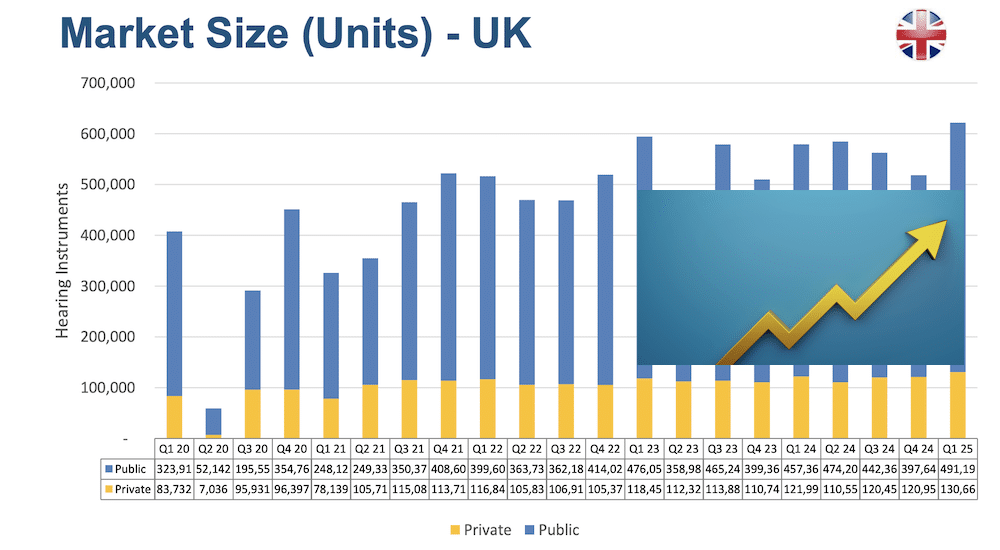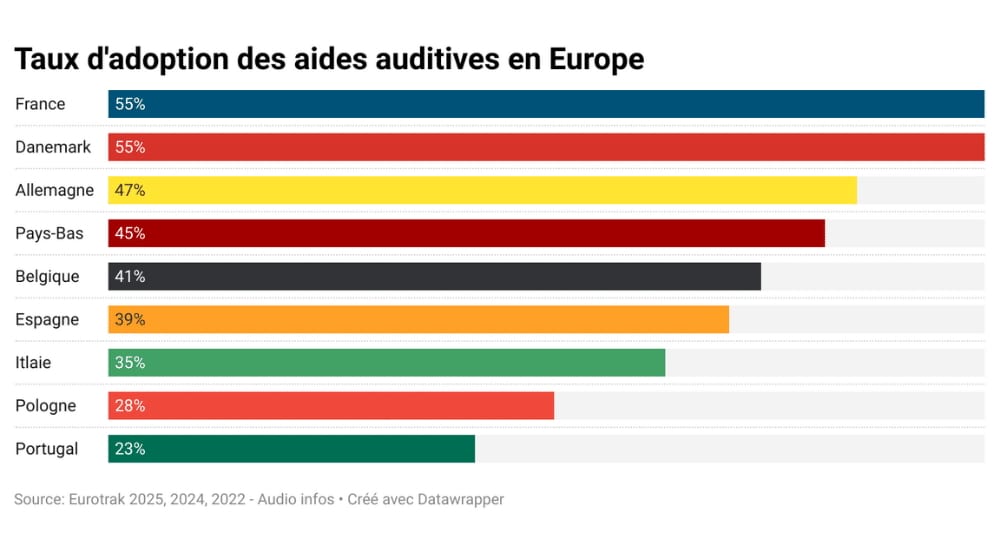Cochlear implants: stigma and lack of information keeping use low among Spain's profoundly deaf
Spain - 44% do not know what a cochlear implant is, yet more than 200,000 suffer profound hearing loss.

Only 23,000 of the more than 200,000 people with profound hearing loss in Spain use a cochlear implant to replace the function of the damaged inner ear, according to data released by GAES on the occasion of Cochlear Implant Day (February 25, 2024).
It is estimated that only 5.7% of all adult candidates to take advantage of this technology have received this treatment, due to stigma and lack of information. These barriers are just two of the many to overcome.
“Ignorance about the world of hearing continues to be a widespread reality in our country,” a GAES source commented, underlining that “44% of the population does not know what a cochlear implant is and what functions it has.” These are some of the conclusions of the recent GAES Study on Hearing Health in Spain.
The device, introduced more than 35 years ago in Spain, is implanted through a surgical operation in the inner ear and allows people with severe-profound hearing loss to improve their quality of life in a very significant way, since with it they can hear and understand oral language with greater clarity, as the same sources emphasise.
A problem corrobrated by the AICE Federation
In Spain there are more than 200,000 people with profound hearing loss. According to the AICE Federation (Associations of Cochlear Implant Patients of Spain), only 23,000 use a cochlear implant. It is estimated that only 5.7% of adults who could be candidates for a cochlear implant have received it. Furthermore, less than ten percent of patients obtain adequate information about it.
According to the World Health Organisation (WHO), around 430 million people worldwide have disabling hearing loss. Among the main reasons why many of these individuals do not use cochlear implants are stigma and fear of surgical interventions, in addition to lack of information.
CI 2024 International Conference in the Canary Islands
The current situation and the approach to this hearing solution for patients with profound hearing loss were some of the topics in focus at the 17th International Conference on Cochlear Implants and other implantable technologies (CI 2024), held this past week in the Canary Islands.
Dr. Carlos Cenjor, president of the GAES scientific committee and speaker at the event, explains: “Cochlear implants constitute one of the greatest technological advances of recent times, being a procedure that restores hearing to people with severe-profound hearing loss in a predictable, satisfactory, and safe way. The WHO predicts that by 2050, one in four people in the world will suffer from some degree of hearing loss. We are talking about a trend that is on the rise and that also encompasses severe-profound conditions, which is why it is very important to disseminate and raise awareness about the improvement in quality of life that cochlear implants provide.”
Manuel Bernal: “It is not a complicated option”
For his part, Dr. Manuel Bernal, president of SEORL-CCC (Spanish Society of Otorhinolaryngology and Head and Neck Surgery), adds: “We professionals have to ensure that no patient is left without information about a technique that could notably improve their life.” Explaining to them in detail what they are, how they work and all the advantages they provide is very important so that they are encouraged to take the step. “It’s about understanding that it is not a complicated option.”
Also from the GAES hearing implants area, its director, Javier García, insists that stigma is one of the main challenges to overcome. “Wearing cochlear implants, hearing aids and any other hearing aid should never be a reason for shame. There are people who do know these products and know that they would be good for them, but they do not want to wear them because they believe that they give an image that they do not like. Advancing awareness about the use of cochlear implants also means normalising it in everyday life,” he argues.
Source: Audio Infos 365


